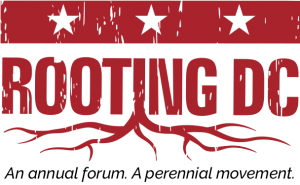The Mushroom Foray – October 29th : Possible projects include hops tincture (sleep aid), dandelion tonic or edible greens, lambs quarters greens, and the antioxidant-rich immunity booster, elderberry syrup. If we are lucky, wild maitake (hen of the woods) or chicken of the woods mushrooms will be available to make a soup or stir-fry. (we will do one or two of these). Ethical, forest-friendly harvesting methods will be discussed.
Come prepared for a fun walk in the woods to observe and forage for wild edible plants and possibly mushrooms, depending on what is available and in season. We will prepare a shared dish or two featuring wild edibles and possibly a tincture made of wild-forged herbs.
This class is good for a newbie, but if you have them, bring your favorite manuals and books so that we can share our knowledge, experience, and favorite wild-foraged foods and medicines. Bug spray, layered, protective clothing, and shoes or boots suitable for walking through the woods are recommended.
Facilitator:
Marie Erb-Crow has gathered and prepared wild edible plants and herbs since childhood. For seven years she ran a landscape design company specializing in eco-friendly design and woodland property preservation.
A firm believer that food is medicine, she makes her own sleep aids and tonic tinctures and she harvests and prepares wild mushrooms and edible plants for her family.
Todd Brethauer, USBG Science Education Volunteer
From their glorious spring blossoms that light up our landscapes to the tasty fruit harvested in late summer through late autumn, pome fruits play an important part of our horticultural and nutritional palettes. Spend an hour learning about the origin of the apple and where you can find a forest of its wild ancestors. Find out how modern genome sequencing techniques are clarifying the evolutionary history of these fruits and providing tools for breeders confronting insect pests and diseases that affect the trees. – See more at: https://www.usbg.gov/events/2016/05/21/lecture-pome-fruit-apples-pears-quince-botany-history-and-production#sthash.bJ3U5Hgp.dpuf
Pre-registration required.
Brent Steury, Natural Resources Manager, National Park Service
Join Brent as he summarizes 11 years of biodiversity inventory efforts from a National Park near the Nation’s Capital. Highlights of these efforts include the documentation of 5,395 species, 100 species new to the flora or fauna of Virginia, 7 species new to the District of Columbia, 3 species new to North America, at least 71 species new to science, 106 species state listed for rarity, 3 federally threatened species, and 58 peer reviewed journal articles published in the last 11 years.
– See more at: https://www.usbg.gov/events/2016/05/21/lecture-finding-new-species-nations-capital-george-washington-memorial-parkway-all#sthash.wukMGqJH.dpuf
Pre-registration required.
Learn about how to correctly harvest and the different ways to cook a variety of vegetables from the garden through lecture and hands on cooking demos.
Teacher
As the Brain Food Garden Manager, Lyssa Houser is excited to grow the Brainfood Youth Garden as an extension of Brainfood’s food-based youth development programming. Lyssa’s background in food education includes experience developing and implementing intergenerational gardening programming as the Garden and Cooking Educator for the DC Department of Parks and Recreation. She also has experience leading garden education efforts through her work as the Director of Education for Wangari Gardens, where she teaches public workshops, supervises the planning and maintenance of the public gardens, and leads solar-cooked community lunches. She has also worked with Common Good City Farm, Old City Farm and Guild, Solar Household Energy, Inc, and Love & Carrots
Matthew J. Wichrowski, MSW, HTR, Sr. Horticultural Therapist, Clinical Assistant Professor, Rusk Rehabilitation, NYU-Langone Medical Center
Interest in the beneficial effects of nature has been on the rise lately. Join us as we explore the foundations of horticultural therapy and its use in healthcare settings, including therapeutic garden design. Recommendations for personal health and wellness are provided. – See more at: https://www.usbg.gov/events/2016/05/20/lecture-horticultural-therapy-healthcare-and-beyond#sthash.Z9brdukg.dpuf
Learn how people can produce what they need from a garden that resembles a forest. In an era when people have strained the world’s ecosystems to meet their needs, a forest garden provides a critical combination of benefits for people and planet — cleaning water, building soil, and providing a bounty of food and supplies. Come learn about some of the plants and practices of this exciting way of gardening and eating.
Teacher Bio:
Lincoln Smith runs Forested, a forest garden company in Bowie, MD (www.forested.us). He helps landowners in the eastern US create successful forest gardens through consultation and through training at the 10-acre Forested demonstration garden. He is working on making and marketing acorn foods through collaboration with Korean acorn food producers. Lincoln spent five years designing and managing high-end residential landscape projects and pushing sustainability at Graham Landscape Architecture in Annapolis. He holds a Master of Arts in Landscape Design from the Conway School, a Permaculture Design Certificate from Wayne Weiseman, and earned LEED certification in 2008.
Sunday, June 5th from 9am to 11am
$20
Michael Weese leads a mushroom foray and walking class over Fox Haven land.
What will we find on this mushroom foray? Who knows! Mushrooms fill different niches in different areas and arrive as fruit at different times of the year. Every foray is a treasure hunt! Experienced forager and grower Michael Weese will lead this foray to discover the species that are present on June 5th at Fox Haven Learning Center. For each species found on this foray Michael will give a thorough discussion on its life cycle, ecological niche, and culinary, medicinal and ethnobotanical uses. Join the hunt!
Michael will be vending his own mushroom merchandise after the class!
Register with Lacey at lacey[at]foxhavenfarm[dot]org
Description
Introduction to local, native pollinators found in the area and discuss how to establish and promote effective pollinator habitat. After the talk about pollinators and pollinators gardens, we will be making bamboo native bee nests.
Teacher Bio:
Olivia Bernauer is a Master’s student in the vanEngelsdorp bee lab at the University of Maryland studying the floral preferences of native pollinators. To do this, she works with citizen scientists to identify and observe pollinators on specific plants. Eventually, she will use the observations to create planting recommendations for local pollinator gardens. Olivia did her undergraduate education at the University of Wisconsin where her work with pollinators began. She conducted research on bumble bees and their response to fungicide.


